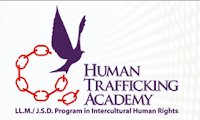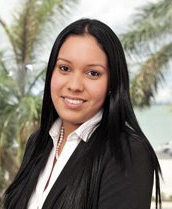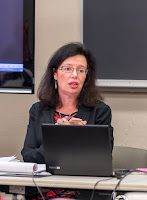 On August 1, 2016 over 95 advocates, students, and academics arrived at St. Thomas Law's for the week-long Human Trafficking Academy. The academy, presented by the law school's LL.M./
J.S.D. Program in Intercultural Human Rights, offered
17 intensive and interactive courses, taught by top-level experts and practitioners with long-time experience in working in the field of
anti-trafficking.
On August 1, 2016 over 95 advocates, students, and academics arrived at St. Thomas Law's for the week-long Human Trafficking Academy. The academy, presented by the law school's LL.M./
J.S.D. Program in Intercultural Human Rights, offered
17 intensive and interactive courses, taught by top-level experts and practitioners with long-time experience in working in the field of
anti-trafficking.Founded and directed by Professor Roza Pati in 2011, the academy also focuses on education, research, and outreach. It has affected law, policy and practice in combating human trafficking nationally and internationally. Through its education prong, it has certified over 450 professionals of various disciplines: attorneys, public defenders, prosecutors, judges, law enforcement, social service providers, child protection investigators, health care providers, academics, students, faith-based organizations, and also human trafficking survivors.
| St. Thomas Law's 2016 Human Trafficking Academy |
In its outreach function, it has developed relationships with and coached over 7000 individuals locally, nationally and internationally, within the private and public sector. While the research component successfully overseas and supports the development and implementation of relevent publications, doctoral and master’s theses, symposia, seminars and conferences.
Attendees also benefited from the opportunity to share and discuss aspects of their own work experience in combating human trafficking.
TESTIMONIALS FROM ATTENDEES:
“The training materials and expert speakers are priceless.
“I have to say that in this course, I have been pleasantly surprised how good and engaging all the instructors were. I have never had that experience before! Bravo!!”
"The atmosphere allowed great exchange of
resources between all the different organizations, lawyers, law enforcement,
advocates and good Samaritans. I benefited greatly and will be able to use the
tools in our organization and local community in Texas.”
“I will highly recommend it to my friends and
colleagues working or not working in the field,”
“This Academy has been a God-send!”
“This Academy has been a God-send!”
"We, at St. Thomas Law’s LL.M./ J.S.D. Program in Intercultural Human Rights are humbled and honored by such appreciation,” stated academy director, Dr. Roza Pati. “Providing our community of professionals with the most up-to-date knowledge, best tools and most effective skills to combat human trafficking is not just our natural profession as educators but, in our Catholic tradition, it is also a noble cause. It is our mission, our calling.”




